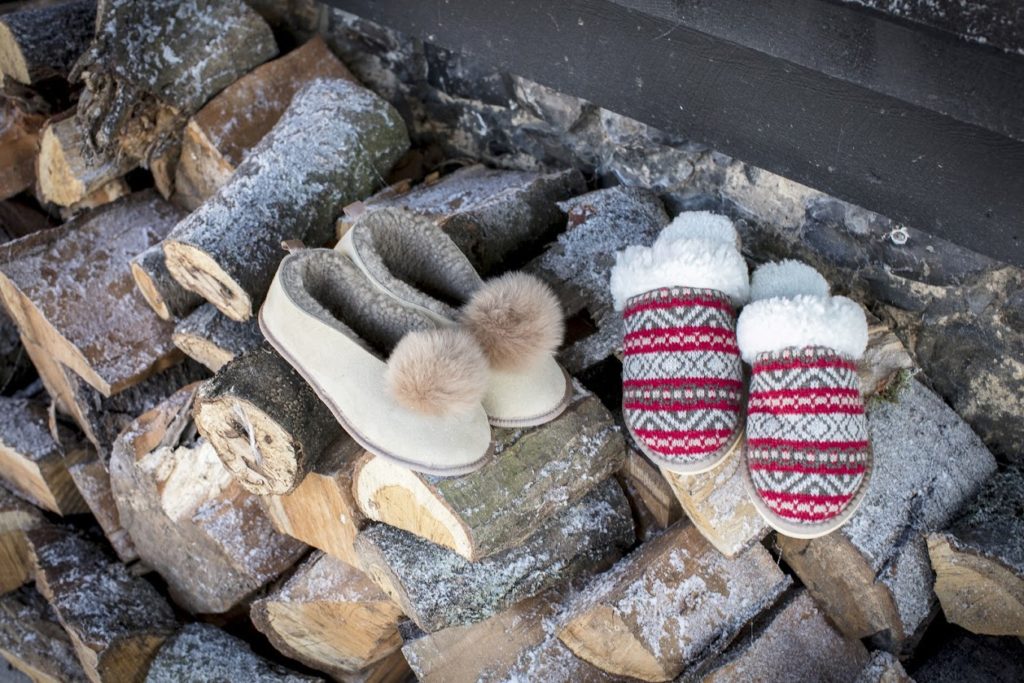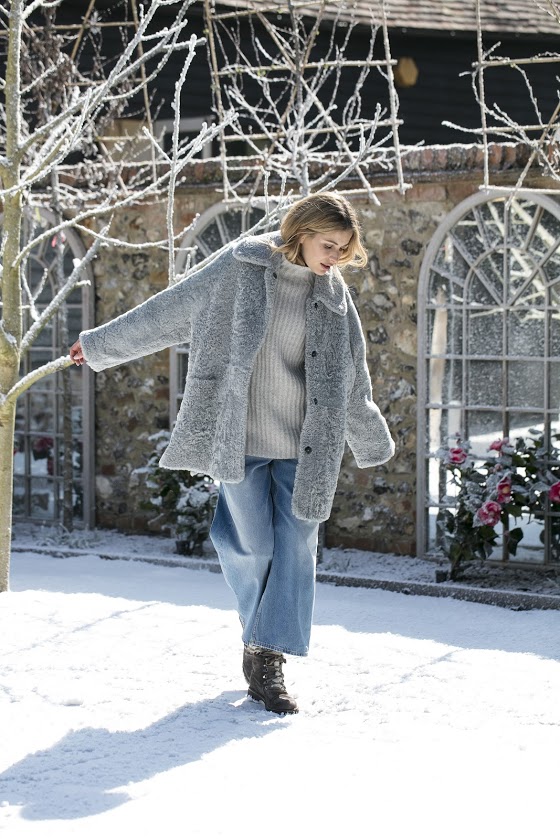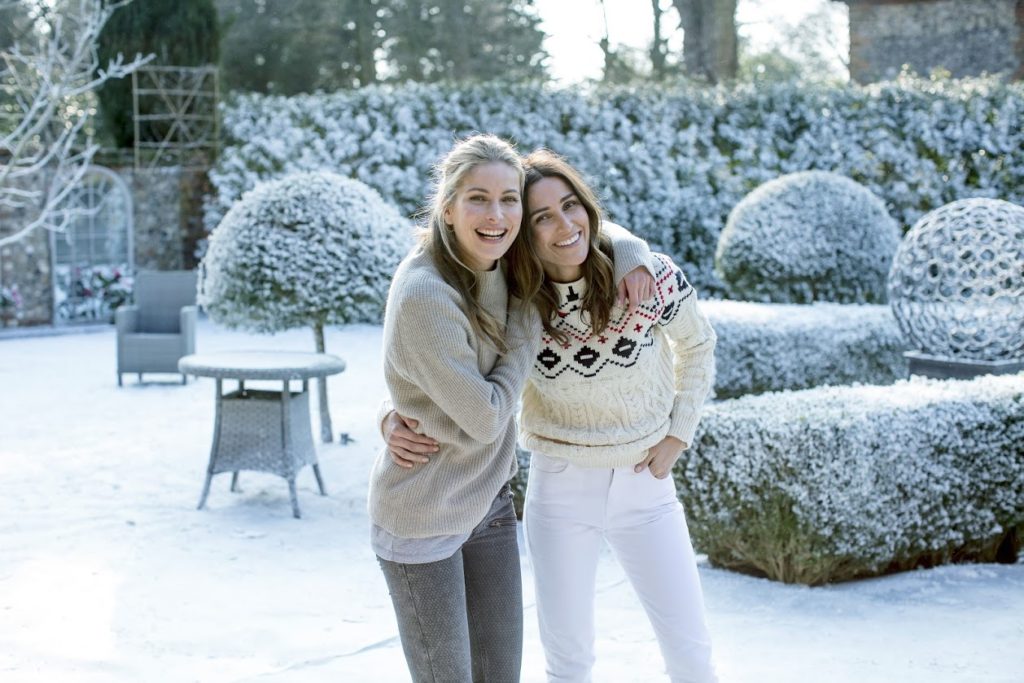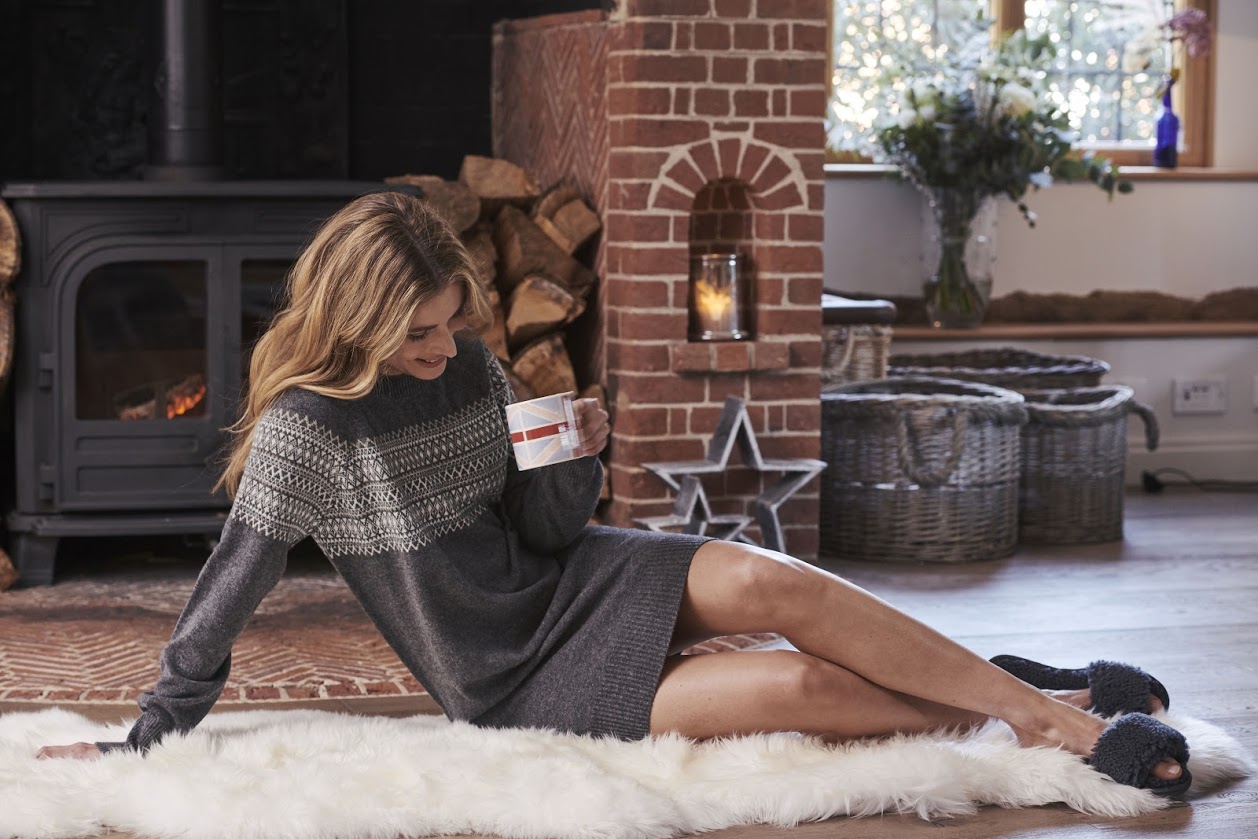When Nick and Kath Whitworth saw an ad for a small boot-making business for sale in their local paper in 1990, they bought it—with just seven pairs in stock, two sewing machines, and no boot-making expertise.
“We decided to try our hand at making footwear from British sheepskin,” said Nick, adding that they were determined to create a living in their hometown of Newquay, Cornwall, UK. What started with just one hired seamstress and one little building in the heart of Newquay has grown into one of Britain’s most successful luxury fashion brands, employing over 40 people and, in April of this year, receiving the Queen’s Award for Enterprise in the International Trade, considered to be the highest UK award for British businesses.
The company, which turns thirty next year, now makes all sorts of clothing besides just boots: wool sweaters and kilts, linen shirts, leather pants, shearling jackets and gloves, cashmere socks, hiking boots and sliders—the list goes on and on. Most of their suppliers are based in the UK, and all sheepskin boots and slippers are still made in their Newquay factory.

Creating Ugg-style boots, the team registered the first ‘Ugg’ trademark, later selling it in 1997 and reinvesting the money back into the company. They used to go by the Celtic Sheepskin Company, but now go by Celtic & Co. to reflect the wide range of products they sell today.
Their stuff is as wearable as it gets—think fluffy coats, chunky sweaters, and hiking boots that’ll stand the test of time. The products are no-frills but on-trend. And, to top it all off, the products have been sustainably produced since the brand’s inception. These products pass tests of quality, style, and sustainability, making them a perfect fit for a New England wardrobe.
“Sustainability has been at the heart of our ethos from the beginning,” said Kath. “We only ever use natural materials because they are renewable and sustainable. And a pleasure to wear!”

They use sheepskin because it’s an otherwise wasted part of the animal. “If sheepskins aren’t used, they need to be incinerated at very high temperatures,” said Nick. “There are only around ten of these incineration facilities in the UK, meaning that the process of transporting the skins to them generates a high carbon footprint.”
By purchasing the skins, they’re helping their local farmers make a profit. Around 75% of all of their suppliers are based in the UK, so they keep their garment miles to a minimum. “We find that this local sourcing ensures that we know our suppliers are ethical, and we’re supporting local economies and limiting transportation,” said Kath.
The company takes measures to promote sustainability any way they can within their offices and factories, too. “Within the company we compost all our organic waste, including tea bags, and recycle everything and anything,” said Nick. “We also utilize recycled corrugated boxes to ship our orders out. When we get a box back from a return, we then reuse it until it becomes unusable, then we recycle it.” They’ve even switched from plastic to paper tape, and from plastic pens to wooden pencils.

With their thirtieth anniversary swift approaching, they have “big plans” for next year’s autumn/winter season, said Kath. “You’ll see revivals of old favorites and some new showstoppers.”
Nick and Kath say that Celtic & Co. “will always be a family-run business,” with their daughter Clare now part of the heart of it.
“Sustainability has been at the heart of our ethos from the beginning,” said Kath. “We always look for ways to impact our environment positively.” Cheers to that, and cheers to another thirty years.
For more information, visit celticandco.com.

